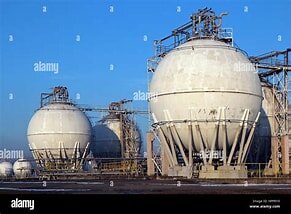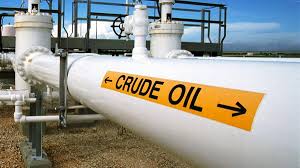Washington, Jan. 15, 2025 – Goldman Sachs is warning of potential upside risks to oil prices following U.S. sanctions on Russia’s energy sector, with Brent crude already approaching $80 per barrel and the possibility of hitting $90 under certain scenarios.
In a note shared Monday, Goldman Sachs commodity analyst Daav Struyven analyzed the market impact of sanctions imposed by the Biden administration just days before the presidential transition.
Brent crude has rallied from the low $70s in late December to $80 as of Friday, driven by tightening supply dynamics and uncertainty about future Russian oil exports.
Meanwhile, the West Texas Intermediate light crude, as tracked by the United States Oil Fund (NYS), has soared past $77 a barrel.
What’s Behind the Latest US Sanctions on Russia?
On Friday, the U.S. announced its most extensive sanctions yet on Russian oil production and exports.
The measures, coordinated with the U.K., target two major Russian oil companies, responsible for nearly 1 million barrels per day (mb/d) of seaborne exports in 2024.
Additionally, 183 Russian vessels, mostly oil tankers, were sanctioned, doubling the number of blacklisted ships to 270 across the U.S., U.K., and EU.
Struyven estimates that the vessels affected by the sanctions accounted for 1.7 mb/d of Russian crude and product exports in 2024, or 25% of the country’s total export volumes.
In an effort to further isolate Russia, the sanctions also targeted opaque traders and two major Russian insurance providers, which could push Moscow’s fleet further out of credible insurance markets.
“The U.S. administration highlighted three reasons for imposing these sanctions now: higher global spare capacity, forecasts of a 2025 oil surplus, and currently lower prices,” Struyven said.
However, he added, “While the uncertainty is elevated, we have not changed our base case for Russian production,” which assumes an average of 10.6 mb/d in 2025.
Could Brent Hit $90?
Goldman outlined four scenarios that could drive Brent oil prices increasingly higher:
Scenario 1: Russian production temporarily falls by 1 mb/d in February, but recovers by April. OPEC+ raises production by July. In this case, Brent could peak at $86 per barrel in March before stabilizing.
Scenario 2: Russia’s supply drops persistently by 0.5 mb/d. “Trump may not ease sanctions once he takes office but could tie their removal to the negotiation and/or successful implementation of a potential Ukraine-Russia peace deal,” Struyven said. In this scenario, Brent could rise to $83 per barrel by mid-2025.
Scenario 3: Iranian exports fall by 1 mb/d due to tighter sanctions enforcement under a potential U.S. “maximum pressure” campaign. This could also push Brent to $83 per barrel by mid-2025.
Scenario 4: A combined disruption where Russian output briefly drops by 1 mb/d and Iranian supply falls persistently by 1 mb/d. Brent could surge to $90 per barrel in March under this worst-case scenario.
“We estimate that Brent rises to a peak of $90 per barrel in March in a combined scenario where both Russian and Iranian supplies are disrupted,” Struyven said.
However, he added, “The long-term price impact of lower sanctioned supply is limited because we assume OPEC+ would stabilize the market by deploying its high spare capacity.”
US Policy Uncertainty Adds Complexity
U.S. policy uncertainty complicates matters, with the incoming Trump administration’s approach to Russian sanctions still uncertain. Goldman suggested that Trump may not lift the measures immediately, potentially tying their removal to the negotiation or implementation of a Ukraine-Russia peace deal.
“The incoming U.S. administration will likely want to avoid large and persistent drops in Russian oil volumes given its policy goal of lower U.S. energy prices,” Struyven wrote.
Goldman also highlighted the role of price-sensitive buyers, such as China, India, and Turkey, which have increasingly imported Russian crude since the West imposed sanctions in 2022.
“Russian oil can discount to incentivize continued shipping by a dynamic shadow fleet and purchases by price-sensitive buyers in existing or new destinations,” Struyven said. (Benzinga)



